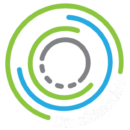Citizen Science provides opportunities for participants to explore for themselves, in a scientific and methodical manner, the empirical facts rooted in a hypothesis, the possible answers originating in a question, or the data evidence mapping out a concern.
The page is sectioned by audience type with a header that briefly summarizes the Resources area. Different sections may have repeating resources as long as they are useful for the specific audience. The usage scenario is assumed for a visitor to land on the page, then decide which audience type s/he belongs to and click to that particular section to follow a checklist/guide of available resources. Initially, we will be leveraging what’s around the internet and point visitors to external sites (in a new window), but overtime, we would like to add our own content.
For Educators
Citizen science in the classroom (easy reading)
- Cos4Cloud’s Education resources for co-created environmental citizen science projects with schools (Greek context, with multiple case-studies as examples)
- “Citizen Science in the Classroom using Cornell University’s Bird cams” – an introductory video with links to various citizen science projects related to bird biodiversity (PBS Learning, 2019)
- Participatory Science for Educators (Cornell University resource)
- “8 Great Reasons Why You Should Bring Citizen Science In Your Class” – a blog post by Karen McDonald on SciStarter.org (2014)
- “Bringing Research into the Classroom: The Citizen Science Approach in Schools” by SCIENTIX Observatory Report 2019 – free downloadable resource with multiple European examples of citizen science projects
Tools for educators about citizen science
Citizen science projects for primary, secondary & university students:
- https://scistarter.org/education
- https://education.nationalgeographic.org/resource/citizen-science-projects
Courses & resources about citizen science in education
- Key Practices for “What Works in Youth Community and Citizen Science?” and Begin a Project: Ask Questions about your Campus by UC Davis, Center for Community and Citizen Science
- “Inspiring Investigations through Citizen Science” by Cornell University’s Bird Lab
- “e-Bird Essentials for Educators” – free downloadable guide
- “BirdSleuth Explorer’s Guidebook” – free downloadable book for primary school students
6 Key questions to ask when starting an educational citizen science project
- For an educational program, which citizen science project would be appropriate for the learning objectives?
- What questions are being asked and who would find these questions important?
- Why would students find this project worthwhile?
- What do educators hope to achieve by using this project with students?
- What are the learning goals and how would you measure the achievements and impact?
- What prior experience or support is available to educators to initiate this project?
For Researchers
Research / Publications on Measuring Impact of Citizen Science

MICS is developing metrics and instruments to evaluate citizen-science impacts on environment and society. At the time of writing, the platform is undergoing testing and cannot be used externally. Nevertheless, it has resources / deliverables on its site.
6 Key questions to ask when starting an educational citizen science project
- For an educational program, which citizen science project would be appropriate for the learning objectives?
- What questions are being asked and who would find these questions important?
- Why would students find this project worthwhile?
- What do educators hope to achieve by using this project with students?
- What are the learning goals and how would you measure the achievements and impact?
- What prior experience or support is available to educators to initiate this project?
Kieslinger, B., Schäfer, T., Heigl, F., Dörler, D., Richter, A., & Bonn, A. (2018). Evaluating citizen science: Towards an open framework. In A. Bonn, S. Hecker, M. Haklay, A. Bowser, Z. Makuch, & J. Vogel (Eds.), Citizen Science: Innovation in Open Science, Society and Policy (pp. 81–96). UCL Press. http://www.jstor.org/stable/j.ctv550cf2.13
For Researchers
Research / Publications on Measuring Impact of Citizen Science

MICS is developing metrics and instruments to evaluate citizen-science impacts on environment and society. At the time of writing, the platform is undergoing testing and cannot be used externally. Nevertheless, it has resources / deliverables on its site.
Kieslinger, B., Schäfer, T., Heigl, F., Dörler, D., Richter, A., & Bonn, A. (2018). Evaluating citizen science: Towards an open framework. In A. Bonn, S. Hecker, M. Haklay, A. Bowser, Z. Makuch, & J. Vogel (Eds.), Citizen Science: Innovation in Open Science, Society and Policy (pp. 81–96). UCL Press. http://www.jstor.org/stable/j.ctv550cf2.13
For Researchers
Research / Publications on Measuring Impact of Citizen Science

MICS is developing metrics and instruments to evaluate citizen-science impacts on environment and society. At the time of writing, the platform is undergoing testing and cannot be used externally. Nevertheless, it has resources / deliverables on its site.
Kieslinger, B., Schäfer, T., Heigl, F., Dörler, D., Richter, A., & Bonn, A. (2018). Evaluating citizen science: Towards an open framework. In A. Bonn, S. Hecker, M. Haklay, A. Bowser, Z. Makuch, & J. Vogel (Eds.), Citizen Science: Innovation in Open Science, Society and Policy (pp. 81–96). UCL Press. http://www.jstor.org/stable/j.ctv550cf2.13
